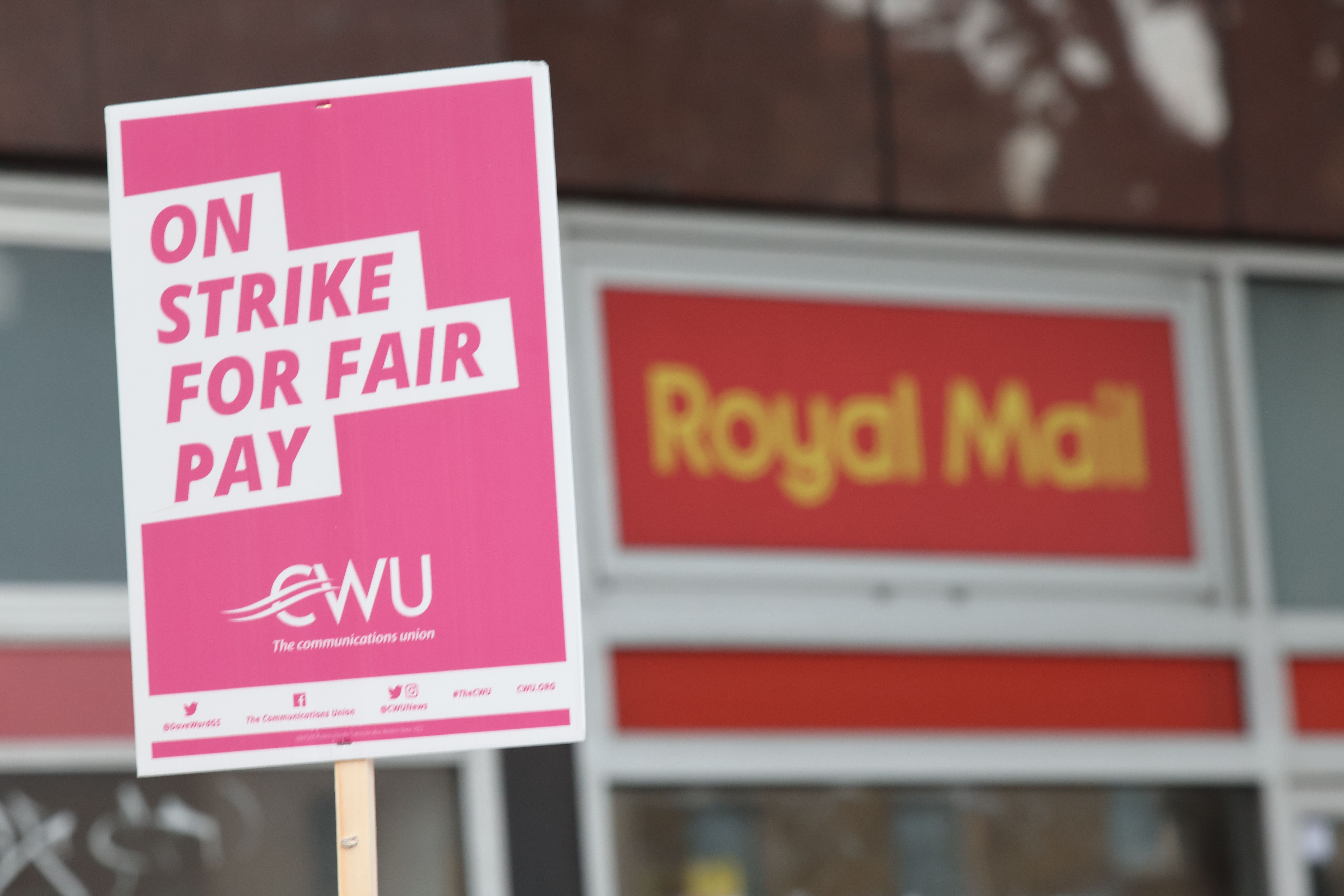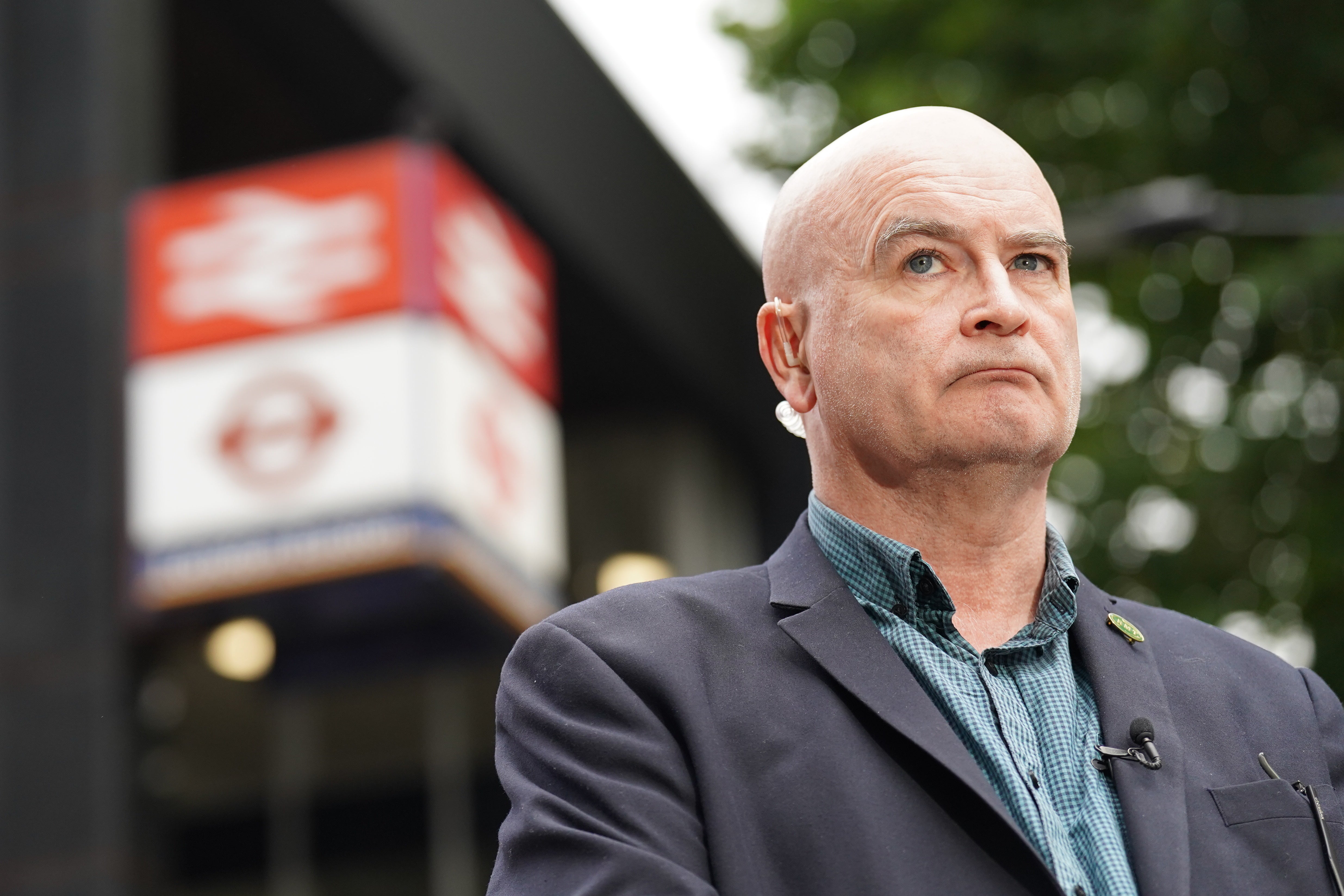Royal Mail workers’ strike to go ahead on Thursday and Friday
‘Best and final’ pay offer rejected as disruption set to hit Black Friday shopping

Your support helps us to tell the story
From reproductive rights to climate change to Big Tech, The Independent is on the ground when the story is developing. Whether it's investigating the financials of Elon Musk's pro-Trump PAC or producing our latest documentary, 'The A Word', which shines a light on the American women fighting for reproductive rights, we know how important it is to parse out the facts from the messaging.
At such a critical moment in US history, we need reporters on the ground. Your donation allows us to keep sending journalists to speak to both sides of the story.
The Independent is trusted by Americans across the entire political spectrum. And unlike many other quality news outlets, we choose not to lock Americans out of our reporting and analysis with paywalls. We believe quality journalism should be available to everyone, paid for by those who can afford it.
Your support makes all the difference.Royal Mail workers will strike over the Black Friday shopping period after union leaders rejected an 11th hour pay deal aimed at averting industrial action.
Strikes will go ahead on Thursday and Friday after last-ditch talks between Royal Mail and the Communication Workers Union (CWU) ended without a deal.
Royal Mail said it had tabled a “best and final offer” aimed at resolving its dispute, including an enhanced pay deal of up to 9 per cent and a profit share scheme for employees.
But the CWU said on Wednesday that the 48-hour strike involving around 115,000 postal workers will go ahead – referring to the pay offer on Twitter as a “surrender document”.
Members have already held a series of strikes in recent weeks, coming amid a wave of planned industrial action among transport workers, NHS and public sector staff.
Simon Thompson, Royal Mail’s chief executive said his team had made “numerous improvements and two pay offers”, and said strike action had already cost the company £100m.
He added: “Negotiations involve give and take, but it appears that the CWU’s approach is to just take ... We are facing the difficult choice of about whether we spend our money on pay and protecting jobs, or on the cost of strikes.”
The company said it had committed to no compulsory redundancies until spring 2023 at the earliest, had offered to make Sunday working voluntary, as well as staggering the introduction of later start and finish times.
But the CWU said it wanted an improved 18-month pay deal, including back pay for all workers, and a guarantee of no compulsory redundancies.
The union’s leader Dave Ward said he was disappointed that Royal Mail had chosen to pursue “such an aggressive strategy” – saying workers could not accept “a devastating blow to their livelihoods” given rising inflation.
Asking for public support during disruption, he added: “We urge every member of the public to stand with their postie, and back them like never before.”
It come as RMT rail union leader Mick Lynch denied being “the Grinch who stole Christmas” as he defended a series of major train strikes planned over the festive period.
Asked about reports portraying him as “the Grinch”, Mr Lynch said: “I’m not the Grinch. I’m a trade union official, and I’m determined to get a deal.”

Transport secretary Mark Harper is expected to meet Mr Lynch and RMT bosses on Thursday in bid to get the union to call off disruptive action in December and January.
The RMT has announced a series of 48-hour strikes starting 13–14 December by its members at Network Rail and 14 train companies, which threatens travel chaos.
Mr Lynch said: “We have been reasonable but it is impossible to find a negotiated settlement when the dead hand of government is presiding over these talks.”
Mr Lynch accused the Department for Transport of “blocking” a deal – saying the Rail Delivery Group, representing the train operating companies, had told him they could not make an improved offer on pay and conditions.
Asked on Good Morning Britain if he was accusing the government of a “bare-faced lie” on whether it was blocking the deal, Mr Lynch “I am, yes.”
Urging Mr Harper to help get a deal done, he said: “This whole process has become a farce that only the new secretary of state can resolve. When I meet him, I will deliver that message.”
Work and pensions secretary Mel Stride said the consequences of the strikes will be “quite serious”, disrupting “medical appointments” as well as family reunions taking place over the festive period.
The cabinet minister said both the unions and Network Rail “really should be engaging more on that and working things out between them more vigorously”.
Labour’s shadow home secretary Yvette Cooper has called on the government to “get its act together” and negotiate with rail union chiefs to prevent strikes.
“People have a right to withdraw their labour and to strike as part of that, and we’ll always support people’s right to be able to do that, but ultimately we need a deal in place, and that is what we’ve been calling for,” she told BBC Radio 4’s Today programme.
A spokesperson for the Department for Transport said: “Strike action risks putting the very future of the entire industry in jeopardy … We once again urge union leaders to work with employers and come to an agreement which is fair for passengers, taxpayers and workers alike.”




Join our commenting forum
Join thought-provoking conversations, follow other Independent readers and see their replies
Comments